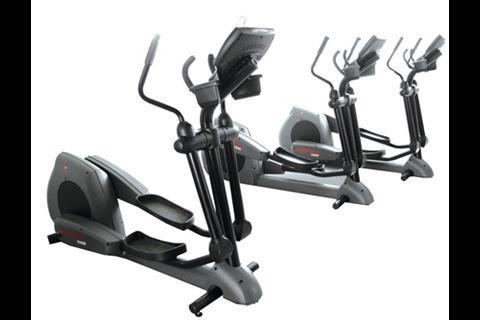HereŌĆÖs how
Disappointed with the figure on your monthly payslip? Don't despair - take-home pay is only half the story when it comes to getting the most out of your employer. Firms are becoming more inclined to emphasise the benefits and lifestyle perks they offer than enter into bidding wars to attract and keep their staff. Taking advantage of benefits such as gym membership, company mobiles and season ticket loans can potentially add thousands of pounds a year onto your wages.
Bargaining is particularly effective for those who are on the verge of accepting a new position says Greg Lettington, director of recruitment company Hays Construction and Property. ŌĆ£Jobseekers should appreciate that in many companies there is only a certain budget allocated to a role, no matter how good the candidate,ŌĆØ he advises. ŌĆ£Benefits are a good way of maximising your package and they should be a key point of negotiation for jobseekers.ŌĆØ
If youŌĆÖre not planning on moving, trawl your companyŌĆÖs intranet for information on what it can offer and keep an ear out for benefits that friends in other firms enjoy. Then do your research and make a case to your HR department or boss for why they should offer such perks to you and your colleagues. They might add up to more than you think ...
Gym membership (+ ┬Ż200)
If you are going to pay to join a gym anyway, doing it through your firm will save you cash. ŌĆ£It could add up to a couple of hundred pounds tax free benefit over the course of a year,ŌĆØ says Lettington. Surely enough to ease your guilt every time you realise youŌĆÖve only worked out twice in a month.
Season ticket loan (+ ┬Ż141)
A lot of companies offer interest-free loans for annual travel tickets, and knock monthly repayments off your payslip. This can work out much cheaper than buying weekly or monthly tickets throughout the year. For example, if you live in London, youŌĆÖll spend ┬Ż1,069.20 on monthly zones 1&2 travelcards over the course of a year, but only ┬Ż928 on an annual ticket, saving a fairly substantial ┬Ż141.20.
Free holidays (+ ┬Ż300)
Some firms organise trips abroad, for study or just rewards for hard work. Take the opportunity to see places youŌĆÖd like to visit for free. If theyŌĆÖre paying for the flights anyway, you could always extend your stay by a couple of days and find cheap options for your partner or friends to join you.
Architect Broadway Malyan, for example, organises an annual city tour open to all staff. Past destinations have included Helsinki (the air fare there alone costs ┬Ż300), Lisbon, New York and Berlin. It also offers financial sponsorship and time off to all members of staff who want to seek new experiences. One employee received ┬Ż5,000 and two weeks unpaid leave to renovate a medical centre in Ghana, another was given ┬Ż2,400 and five days additional paid holiday to take part in a trip to Antarctica to study the effects of global warming.
Mobile phone (+ ┬Ż240)
This is a common perk, but often restricted to staff with certain roles or seniority. At construction consultant Bucknall Austin, for example, phones are only available to technical staff or those whoŌĆÖve already got their professional qualifications. But if youŌĆÖre not an automatic shoo-in, you could point out that you make a lot of work-related calls on the run - or, if you dare, that you will be contactable day and night. And if you do manage to convince your boss you need one, you could knock a major chunk out of your monthly outgoings. If you spend ┬Ż20 a month on phone calls, thatŌĆÖs ┬Ż240 a year.
Personal development (+ ┬Ż300)
ŌĆ£Personal development is worth its weight in gold,ŌĆØ says Janette Green, corporate human resources manager at quantity surveyor Gleeds. The firm pays for employees to attend courses in activities such as sailing and parachuting. Arranged independently, these can cost hundreds of pounds. Many firms also offer life-coaching or mentoring schemes, which are becoming increasingly popular but can cost up to ┬Ż300 for six sessions, if you book them yourself.
Car (+ ┬Ż4,000)
At a lot of employers youŌĆÖll have to wait until youŌĆÖre professionally qualified or in the upper echelons of management to get a car allowance, but if you work for a contractor and you have to visit far-flung sites, or youŌĆÖre based somewhere more remote, your employer may offer you one earlier. Allowances - much more common than company cars these days - range from ┬Ż4,000 to ┬Ż7,500. You can get whatever you like - although if you choose something impractical like a two-seater, you may have to pay for the hire of a more practical vehicle when itŌĆÖs required.
Get someone else a job (+ ┬Ż2,500)
Many firms will give you a cash sum if you help them fill vacancies and avoid the expense of agency fees. Bear this in mind when you hear a friend is looking for another job. If you recommend somebody who the firm later hires, you usually get half on recruitment and half when theyŌĆÖve completed probation. Bucknall Austin currently offers ┬Ż2,500, subject to tax and national insurance.
Professional qualifications (+ ┬Ż3,350)
Professional qualifications and subscriptions can be invaluable for keeping up to date and helping you get promoted, and many firms will help you qualify and pay annual fees for you. The most expensive institution, the Royal Institution of Chartered Surveyors costs ┬Ż119 a year for trainees, and ┬Ż204 for new members, and a day-long training course to pass the chartership exams will set you back ┬Ż125. Some employers will sponsor masters degrees, often for graduates of non-construction disciplines, which run into thousands of pounds. A part-time MSc in project management in construction at Salford University for example, costs ┬Ż3,350 and a two-year part-time construction conversion MSc at the University of Central England costs ┬Ż6,100.
Pension contributions (+ ┬Ż1,134)
Your pension might not seem so important now, but employers will give you free money if you take up a company pension. By far the most common are money purchase schemes where you agree to pay a certain percentage of your salary into a personal pension fund every month and your employer promises to match or even double it - making it easier to save than if you arranged a pension yourself. The same goes for private healthcare or life insurance schemes. If you pay in 5% of your average graduate salary of ┬Ż22,672, thatŌĆÖs another ┬Ż1,133.60.
Share options (+ ┬Ż1,800)
If you work for a publicly listed company, savings-related share options schemes, though confusing to get your head round at first, have the potential for excellent returns. TheyŌĆÖre usually open to all employees. Contractor Kier for example is just about to launch a new share saver scheme. You open a building society account and make monthly savings for a fixed period ŌĆō in this case, three years ŌĆō earn a bonus and then use all the money to buy shares at a discounted price. "Last time there was an extremely good return," says Frank Maybin, rewards manager at Kier. "The pre-agreed share price, at the launch in January 2004, was ┬Ż6.25 but it is now around ┬Ż25 - four times as much. Employees could save a maximum of ┬Ż100 pounds per month in the scheme, so those who saved the maximum ┬Ż3,600 saw their money quadrupled." LetŌĆÖs assume you had saved ┬Ż50 a month, over the three years: your ┬Ż1,800 would have grown to ┬Ż7,200 - effectively earning you an extra ┬Ż1,800 a year.
(But donŌĆÖt quote us on this ŌĆ”)
= an overall salary of ┬Ż36,637
Topics
Careers guide April 2007
- 1
- 2
 Currently reading
Currently reading┬Ż22,672 is the average graduate starting salary in the construction industry. But you could earn loads more in perks.
- 3
- 4
- 5
- 6
- 7





































No comments yet